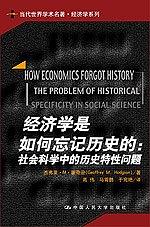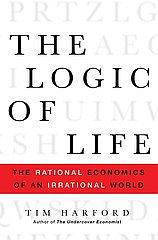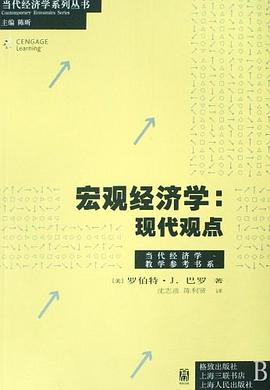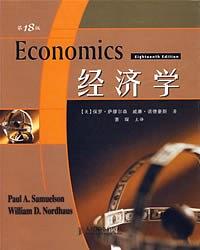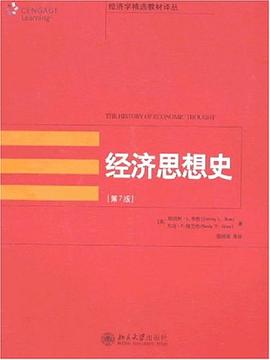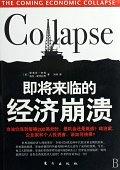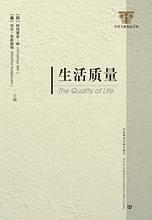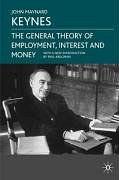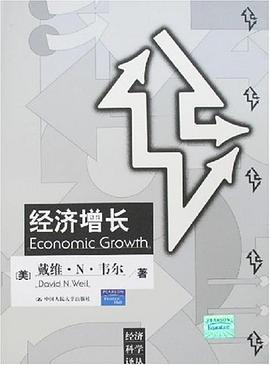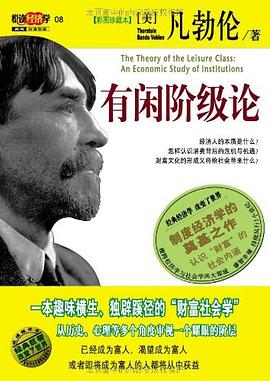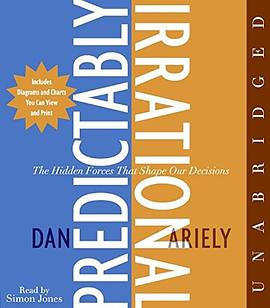

具体描述
Why do our headaches persist after taking a one-cent aspirin but disappear when we take a 50-cent aspirin? Why does recalling the Ten Commandments reduce our tendency to lie, even when we couldn't possibly be caught? Why do we splurge on a lavish meal but cut coupons to save twenty-five cents on a can of soup? Why do we go back for second helpings at the unlimited buffet, even when our stomachs are already full? And how did we ever start spending $4.15 on a cup of coffee when, just a few years ago, we used to pay less than a dollar? When it comes to making decisions in our lives, we think we're in control. We think we're making smart, rational choices. But are we? In a series of illuminating, often surprising experiments, MIT behavioral economist Dan Ariely refutes the common assumption that we behave in fundamentally rational ways. Blending everyday experience with groundbreaking research, Ariely explains how expectations, emotions, social norms, and other invisible, seemingly illogical forces skew our reasoning abilities. Not only do we make astonishingly simple mistakes every day, but we make the same types of mistakes, Ariely discovers. We consistently overpay, underestimate, and procrastinate. We fail to understand the profound effects of our emotions on what we want, and we overvalue what we already own. Yet these misguided behaviors are neither random nor senseless. They're systematic and predictable—making us predictably irrational. From drinking coffee to losing weight, from buying a car to choosing a romantic partner, Ariely explains how to break through these systematic patterns of thought to make better decisions. Predictably Irrational will change the way we interact with the world—one small decision at a time.
作者简介
丹·艾瑞里,18岁时的一场爆炸意外,让艾瑞里全身皮肤70%灼伤,住在烧伤病房达三年之久。身穿治疗用黑色弹性紧身衣、头戴面罩的他,自嘲为“蜘蛛侠”。但恰恰是在这段漫长、无聊,而又痛苦不堪的岁月里,那套奇异的“蜘蛛侠”服装拉开了他与外界的距离,使他可以以局外人的眼光重新看待身边的世界,从此有了探索人类行为与经济关系的兴趣。最终,他成为著名行为经济学家。
丹·艾瑞里是美国麻省理工学院传媒实验室艾尔弗雷德·P·斯隆基金会和斯隆管理学院行为经济学教授、波士顿联邦储备银行研究员、普林斯顿高等研究中心研究员。在麻省理工学院期间他写了这部行为经济学的重要著作。他的文章一直在重要的学术期刊,以及《纽约时报》和《华尔街日报》的专栏上发表。
目录信息
读后感
“常识”之后另有常识——《怪诞行为学》读书笔记&书摘 艾瑞里的《可预见的非理性》是在老罗2010年做《一个理想主义者的创业故事》的演讲中听到的,他说这本书可以作为奸商必读读物,或者也可以作为预防奸商必读读物,那次演讲中老罗同时提到的还有马尔科姆的《引爆点》,这两...
评分October 09, 2008 Predictably Irrational 作者ARIELY是现在行为经济学方面的明星,以色列人,现在MIT的Sloan School作Alfred P. Sloan Professor of Behavioral Economics。96年先在UNC Chapel Hill拿的认知心理学的博士,两年后又在杜克拿了管理学的博士,之后就一直在MIT...
评分那是三十多年前,我在东北林区工作。有一天,当地商店的经理来找我说:“咱们店里的白糖卖不出去,眼看快到夏天了,再卖不出去就要变质。你是学经济的,能不能给我想个办法?”我知道,虽然当年物质短缺“要嘛没嘛”,但林业局用木材换了不少白糖,当地人吃糖并不多,糖并不缺...
用户评价
对于《The Predictably Irrational CD》这个书名,我首先想到的是它可能在探讨一种非常有意思的现象:我们并非总是理性的,但这种“非理性”却常常有规律可循,甚至是“可预测”的。这让我联想到生活中那些令人费解的决定,比如明明知道不该买,却还是忍不住出手;或者在某个情境下,做出与平时截然不同的选择。这类书籍往往能提供一个全新的视角,让我们重新审视自己以及周围的人。我一直对心理学和行为经济学领域的研究非常着迷,因为它们总能用科学的实验和严谨的分析,解释那些看似不可思议的人类行为。这本书的标题精准地抓住了这一点,暗示它将深入剖析这些“可预测的非理性”是如何在潜移默化中影响我们的,并且可能会揭示一些我们从未意识到的行为模式。我很想知道,作者会通过哪些生动的案例和深入浅出的论述,来阐述这一概念。我期待它能让我对自己的决策过程有一个更深刻的认识,甚至能够学习到一些识别和应对这些非理性冲动的技巧,从而在未来的生活中,做出更符合自身利益的选择。
评分《The Predictably Irrational CD》这个书名,在我看来,是一种充满智慧的提问,也是一个引人入胜的承诺。它巧妙地将“可预测”和“非理性”这两个看似矛盾的词语结合在一起,立刻勾起了我对书中内容的好奇心。我们都知道,人性中存在着非理性的一面,但我们往往以为这种非理性是混乱无章的,难以捉摸的。然而,如果这种非理性恰恰是“可预测”的,那将意味着什么?我期待这本书能够带领我深入探索人类决策的奥秘,揭示那些隐藏在日常行为背后的心理规律。我想知道,作者是如何通过科学的方法,发现这些“可预测的非理性”的?这些规律又会在我们生活的哪些方面有所体现?我希望能从书中了解到,为什么在某些情况下,我们即使明知不该这样做,却还是会忍不住做出某些选择,而这些选择的背后,又有着怎样普遍的心理动因。这本书,在我看来,是一次对自我认知的挑战,也是一次学习如何更好地理解自己和他人,做出更明智选择的机会。
评分这本书的名字叫《The Predictably Irrational CD》,光看这个名字,就足以勾起我强烈的好奇心。在信息爆炸的时代,我们每天都在接收海量的信息,做出无数个决定,而很多时候,我们以为自己是理性且深思熟虑的,但真的如此吗?这本书似乎要挑战我们对自身决策过程的认知。我总是对那些能够揭示隐藏在人类行为背后规律的书籍情有独钟,尤其是当这些规律以一种“意料之中”的方式出现时,更让我觉得有趣。想想看,那些我们自以为是独立思考的结果,其实可能早已被某种我们未曾察觉的模式所影响。这种“可预测的非理性”听起来就像一个悖论,但又无比真实,仿佛在说,即使我们觉得自己很聪明,也很难逃脱某些固有的思维陷阱。我期待这本书能够带我深入了解这些非理性的根源,以及它们是如何巧妙地影响我们的选择,从购物到人际关系,甚至更宏大的社会议题。我希望它能提供一些切实可行的方法,让我们在理解这些规律的同时,也能更好地规避它们带来的负面影响,做出更明智的判断。这是一次对自我认知边界的探索,我准备好了。
评分《The Predictably Irrational CD》这个书名,在我看来,已经预示着一场关于人类思维的奇妙旅程。我一直对那些能够颠覆我们固有认知,让我们重新审视自身行为的书籍抱有极大的兴趣。《The Predictably Irrational CD》听起来就像是一本能够揭示隐藏在我们日常决策背后,那些看似矛盾实则暗藏规律的奥秘的著作。我们常常自诩为理性动物,但事实往往并非如此。在许多情况下,我们的选择受到各种非理性因素的影响,而这些影响并非杂乱无章,反而可能有着可循的模式。这种“可预测的非理性”的概念,让我感到无比兴奋,因为它似乎提供了一种可能性,让我们能够更好地理解自己,甚至预判他人的行为。我非常期待这本书能够通过一系列引人入胜的案例研究和实验,深入浅出地剖析这些非理性思维的根源,以及它们是如何在不知不觉中塑造我们的生活。我希望读完这本书,我能对那些让我们做出“傻事”的内在机制有更清晰的认识,并且获得一些能够帮助我做出更明智决策的工具和见解,让我在面对诱惑和选择时,能够更加游刃有余。
评分《The Predictably Irrational CD》这个书名,光是读起来就充满了吸引力。它似乎在暗示,我们那些看似冲动、不合常理的决定,其实并非完全是随机的,而是存在着某种可以被理解甚至预测的模式。这种“可预测的非理性”的概念,非常符合我对人类行为的直觉感受。我们常常在事后才恍然大悟,原来当时自己是多么地“糊涂”,但回想起来,那种“糊涂”的发生往往有迹可循。我一直对那些能够从科学的角度解析人类心理和社会行为的书籍情有独钟。这本书的标题精准地捕捉到了我一直以来感到好奇的那个点:为什么我们会一而再再而三地做出一些事后看来是错误的选择?是不是有什么深层的原因在驱使着我们?我期待这本书能够通过严谨的实验和生动的案例,为我们揭示这些非理性行为背后的心理机制,让我们能够更清晰地认识到自己的思维盲点。我希望它不仅能让我对“为什么”有更深刻的理解,更能给我一些实用的方法,帮助我在未来的生活中,减少非理性决策的发生,做出更符合自己长远利益的选择。
评分准确地说 是听过,这本书从12年开始第一次听,竟然断断续续的到17年才听完,每个章节名称就是内容提要了,现象-假设-实验-验证-总结,基本是这样的路径,有些很有趣,身边的各种非理性/反常行为,被归纳总结,运用到经济和营销,同时也提醒自己是否能识别且绕过这些营销陷阱呢?文字不难,念得也不错,但运动的时候听,难免容易走神
评分写的不错,李笑来推荐的。但之前就已经粗略看过,有声版已下载,未读
评分有些观点感同身受,有些则大概是书中不可讲述详尽,总觉有些牵强武断,又或说为slippery slope. 但总的来说还是本浅显有趣的书
评分虽然很多实验我都看到过了, 不过还是蛮好玩的, 文笔也很清晰值得学习.
评分研究心理学的可以看,研究行为学的可以看,爱胡乱买东西的大姑娘们推荐看
相关图书
本站所有内容均为互联网搜索引擎提供的公开搜索信息,本站不存储任何数据与内容,任何内容与数据均与本站无关,如有需要请联系相关搜索引擎包括但不限于百度,google,bing,sogou 等
© 2026 book.wenda123.org All Rights Reserved. 图书目录大全 版权所有



